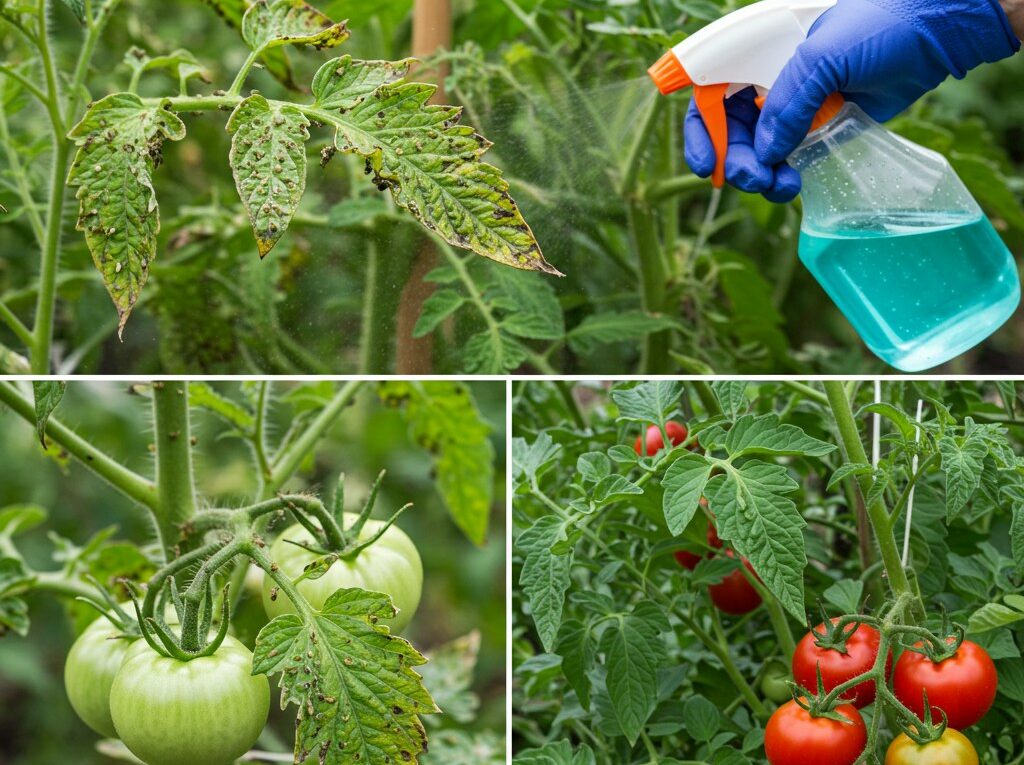Ants and aphids disappear in 1 minute and never come back! The most efficient method
Ants and aphids are common concerns for gardeners and orchard owners. Many people wonder why these insects often appear together and how they can effectively manage them without resorting to harmful chemicals. In this article, we will explore a simple and natural solution to control ants and aphids in your garden or orchard. This method is not only effective but also environmentally friendly, ensuring the health of your plants and soil.
Understanding the Relationship Between Ants and Aphids
Ants and aphids have a mutually beneficial relationship. Aphids feed on the sap of plants and excrete a sweet substance called honeydew, which is highly attractive to ants. In return, ants protect aphids from natural predators and help spread them across plants. This symbiotic relationship can lead to a rapid increase in aphid populations, causing significant damage to crops and fruit trees.
While ants are often seen as pests, they do have some beneficial effects on the soil. They contribute to soil aeration and increase the content of essential nutrients such as potassium and phosphorus. However, when they begin to farm aphids, they become a problem for gardeners, as aphids weaken plants by sucking out their sap. If left unchecked, this can stunt plant growth, reduce yields, and even lead to plant death.
The Best Time to Control Ants and Aphids
The most effective way to control both ants and aphids is to target aphids first. Since ants depend on aphids for their food supply, reducing the aphid population will naturally limit the number of ants in your garden. The best time to start treatment is at the beginning of the growing season, as a preventive measure. By addressing the problem early, you can stop aphid infestations before they become severe, thereby reducing ant activity as well.
Preventing Ants from Spreading Aphids
Since ants transport aphids from one plant to another, one of the most effective ways to control this issue is by preventing ants from reaching your plants. There are several methods to achieve this:
- Double-Sided Tape Method One of the simplest and most effective methods to stop ants from climbing fruit trees is to use double-sided tape. Wrapping the trunk of the tree with this tape creates a barrier that ants cannot cross. They will reach the tape but will be unable to move past it, thus preventing them from carrying aphids onto the tree. However, it is important to remember to change the tape at least once a month to maintain its effectiveness.
- Applying Natural Sticky Substances If you prefer a more natural alternative to double-sided tape, you can apply a sticky substance such as petroleum jelly or a non-toxic glue around the base of the tree trunk. This will have the same effect as the tape, preventing ants from moving upward.
- Using Diatomaceous Earth Another effective method is to sprinkle food-grade diatomaceous earth around the base of plants or trees. This natural powder dehydrates insects, including ants, and prevents them from reaching the aphids. Reapply after rain to maintain its effectiveness.
Treating Aphids Naturally
Since aphids are the root of the problem, it is crucial to control their population. Fortunately, there are several natural ways to eliminate aphids without harming beneficial insects or the environment:
- Neem Oil Spray Neem oil is a natural pesticide that effectively kills aphids without harming beneficial insects like bees and ladybugs. Mix a few teaspoons of neem oil with water and a few drops of dish soap, then spray it onto affected plants. Repeat every few days until the aphid population is under control.
- Homemade Soap Spray A simple mixture of water and mild dish soap can help get rid of aphids. Spray the solution directly onto the aphids to break down their protective outer layer and dehydrate them. Be sure to rinse the plants with clean water after a few hours to prevent any damage.
- Introducing Natural Predators Encouraging beneficial insects, such as ladybugs and lacewings, can help keep aphid populations in check. These natural predators feed on aphids and can significantly reduce their numbers without the need for chemical intervention. You can attract them by planting flowers such as marigolds, dill, and fennel.
- Planting Companion Plants Certain plants, such as garlic, chives, and basil, naturally repel aphids. Planting these alongside your vegetables and fruit trees can help keep aphid populations under control.
Maintaining a Healthy Garden
Apart from controlling ants and aphids, maintaining a healthy garden is key to preventing infestations. Here are some additional tips to ensure your plants remain strong and resilient:
- Regular Pruning: Remove infested leaves and branches to prevent aphids from spreading.
- Proper Watering: Overwatering can weaken plants and make them more susceptible to pests. Ensure proper drainage and avoid excessive moisture.
- Healthy Soil: Enrich your soil with compost and organic matter to strengthen plant roots and improve resistance to pests.
- Crop Rotation: Avoid planting the same crops in the same location each season to reduce the risk of recurring pest problems.
Conclusion
By understanding the relationship between ants and aphids and using natural methods to control them, you can keep your garden healthy without resorting to harmful chemicals. The key is to focus on preventing aphid infestations, as this will naturally reduce ant activity. Simple measures such as using double-sided tape, applying neem oil, introducing beneficial insects, and maintaining healthy plants can make a significant difference.
With a little effort and the right approach, you can effectively manage ants and aphids in your garden, ensuring bountiful harvests and thriving plants. If you found this information helpful, don’t forget to share it with fellow gardeners and subscribe to our channel for more natural gardening tips!
